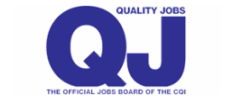PRESS RELEASE – CV Writers covering letters research
A recent survey published on ‘the future of the covering letter?’ by CV Writers reveals a great divergence in the opinion of recruiters over how useful covering letters are as recruitment tools.
The research was conducted by CV Writers, a CV writing consultancy, to find out what place covering letters have in today’s world of job applications. The survey was carried out through an online questionnaire completed by 89 HR professionals and senior line managers, with recruitment responsibility, across the private and public sectors.
Whilst 28% of recruiters said they wouldn’t look at a CV unless the covering letter impressed them over 20% revealed they didn’t review covering letters at all. A further 37% said they would review a CV regardless of the covering letter.
Further findings include:
- Over 40% of recruiters either ‘sometimes’ or ‘never’ forward covering letters to other recruiting managers. There is therefore a significant chance that a covering letter won’t make it past the first recipient and suggests they may be used in a different way to CVs.
- Despite the emergence of ‘video CV’ services just 18% of recruiters believe video CVs are the way of the future. Nearly 60% of recruiters believe CVs will be increasingly stored online.
- The majority of recruiters receive more than 90% of job applications electronically whilst a small proportion (under 7%) continue to receive less than half of their job applications electronically suggesting there is still a small enclave of recruiters yet to embrace the digital age.
- CVs and covering letters are the most popular tools used in deciding whom to invite to interview and are both used by 63% of recruiters respectively.
- Manual application forms are still more widely used than online application forms at 43% and 33% respectively.
- There’s a generally held convention amongst many CV advice services that CVs should not be longer than 2 pages though the research suggests more flexibility may be needed with 75% saying length should ‘depend on the nature of the role’.
Neville Rose, Director of CV Writers, commented “The divergence in opinion about the usefulness of covering letters is remarkable. It may be that recruiters who don’t hold any value in them rely purely on an applicant’s CV where information is formatted in a structured way – making for easier comparison. Letters are inevitably more personal.
Still, with nearly 30% of recruiters saying they won’t even read a CV unless the covering letter impresses them first, the message to job seekers is clear: a good covering letter is vital to your application. The risk of your application going no further because of a poor covering letter is simply too great.
The fact that a high number of covering letters are not getting passed on from the initial recipient suggests they are being used differently to CVs. So the second message for job seekers is not to simply repeat information from the CV but to see covering letters and CVs as complementary. Use the covering letter to confirm who you are, the job you’re applying for and, most importantly, briefly summarise why you feel you’re the right candidate for the job. Use your CV to persuade and convince you’ve got the right skills and qualities.
The employment marketplace continues to be very challenging for job seekers. You’ll considerably improve your career openings by tailoring your covering letter and CV to each application and making sure they work together as a unit.”
A full copy of the report is available for £75. Please contact CV Writers for more details.


 0845 436 0136
0845 436 0136
















